Eczema: a chronic skin disease
Eczema is a word we tend to associate with a red itchy rash. However eczema patients can present not only with red itchy rash, but sometimes with other types of skin lesions. The skin lesions include redness,itchiness, and skin swelling, crusting, cracking and blistering.
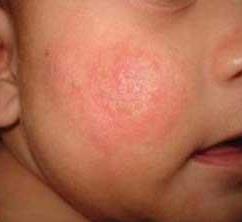
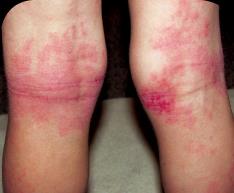
What is Eczema?
- Eczema is a chronic (long-term) disease which can either persistent or recurring.
- Atopic (allergic) dermatitis (eczema) is the most common form of eczema and strongly associated with asthma.
- The skin can become red, swollen, dry and very itchy.
- Eczema (atopic dermatitis) affects about 10% of children.
- In young children, eczema usually appears on the face, chest, back and the outside of the arms and legs.
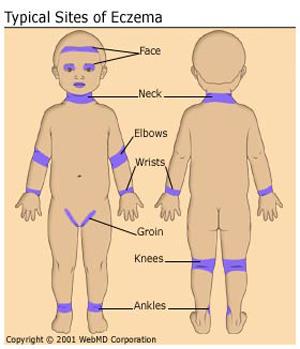
- In older children, eczema often appears on the hands, neck, ankles, behind the knees and on the inside of the elbows.
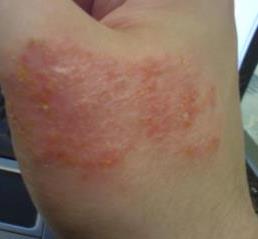
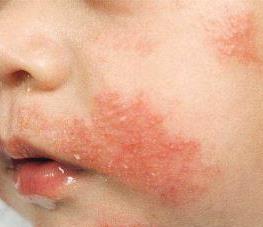
- Eczema usually starts before the age of 2. Often, eczema gets better by the age of 5.
- Children have 40% chance of outgrowing eczema by the time they become adults.
- You cannot get eczema from someone else.
- Eczema can run in families. If one parent has eczema or another allergic disease (asthma, hay fever or food allergy), the child has a greater chance of having eczema and other allergic diseases. The chances are even greater if both parents have eczema or allergies.
- Certain things can trigger eczema to get worse.
Who gets Eczema?
Around 10% to 15% of children age less than 5 years has eczema and 60% - 90% of them outgrow it. About 1% to 3% of adults suffer from eczema.
The eczema and asthma link
Eczema (atopic dermatitis), hay fever and asthma all have one major thing in common - they're all essentially inflammatory disorders of the tissues that separate the body from the outside world.
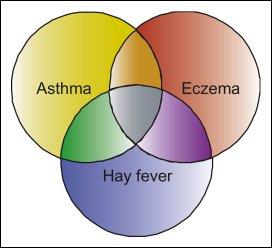
Studies show that 50-70% of children with severe eczema go on to develop childhood asthma. Historically, the connection between the two conditions has been a mystery but new research has might found the connection. It has shown that a substance secreted by damaged and broken skin (caused by the itchy eczema) moves through the body and can trigger asthmatic symptoms.
These findings suggest that the early treatment and control of skin rashes caused by eczema may stop asthma developing.
Sumber: http://www.myhealth.gov.my/index.php/my/asthma-and-eczema
Asthma and Eczema - Etiology
![Asthma and Eczema - Etiology]() Reviewed by dsbbst
on
02:30
Rating:
Reviewed by dsbbst
on
02:30
Rating:







It's a nice article. Everyone should read. Thanks for sharing. For more amazing information you may get from this link Eczema
ReplyDeleteGreat tips regrading eczema . You provided the best information which helps us a lot. Thanks for sharing the wonderful information.
ReplyDeleteUnderstanding the underlying causes of asthma and eczema is essential for effective management. Meri Sehat recognizes the importance of education and offers valuable insights through its platform. With expert medical advice available through online doctor consultations, individuals can gain a deeper understanding of the etiology of asthma and eczema, empowering them to make informed decisions about their treatment and prevention strategies.
ReplyDeleteUnderstanding the link between asthma and eczema highlights the importance of effective treatment. For those addressing related skin concerns, like ice pick scars, advanced solutions are available. The Acne Scar Center provides specialized care to help achieve smoother, healthier skin.
ReplyDelete